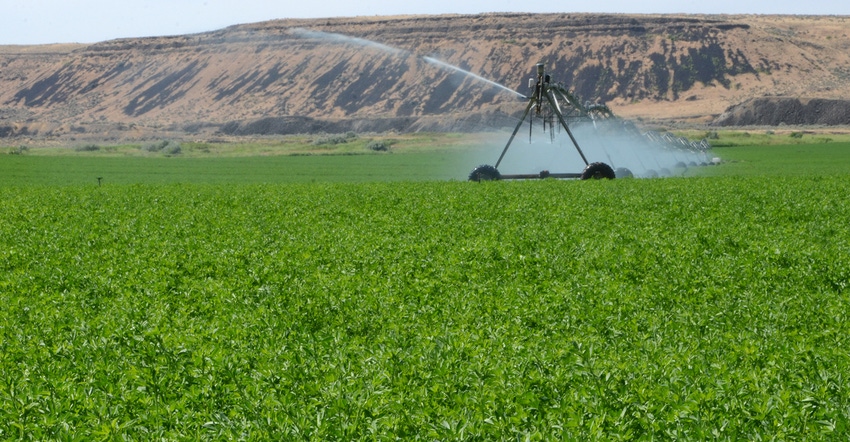August 28, 2017

The Family Farm Alliance supports reauthorization of the farm bill that makes the farm bill’s conservation programs work better for producers in the irrigated West. We’d like to see better opportunities for farmers and their related water management entities to invest in improved water management and efficient irrigation technologies, leading to more — and more reliable — water supplies, increased conservation, increased crop yield and environmental benefits.
Some Western ranchers in the past decade have noted diminished efficiencies associated with Natural Resources Conservation Service delivery of conservation programs to on-the-ground applications. They have observed that the “evolutionary process” which began to occur after the 2003 Farm Bill has weakened NRCS’ ability to provide technical assistance. Currently, about 20% of the NRCS budget is spent on financial or contractual administration matters. This is likely one of the key reasons that only 16% of American farmers are involved with federal farm conservation programs. This issue, and the need to put priority on local input, must be addressed in the new farm bill. We’d like to see less paperwork and more conservation.
Strengthen watershed teams' role
The once-strong role of watershed teams needs to be revived, and there are also opportunities to leverage personnel at the local level, where local professionals can take on some of the technical duties once provided by NRCS staff.
Because many producers in the West use irrigation water delivery systems that are shared among multiple producers — such as irrigation districts, canal companies or mutual ditch companies — to deliver the farm bill's conservation title benefits to Western producers requires the flexibility to work directly with these multiproducer water-delivery entities. Greater focus on the part of NRCS to working with these agencies both in terms of education and program implementation is needed.
We need to remove some of the existing contracting barriers for Western producers, and make the farm bill's conservation title programs more accessible and relevant to them. The time has come to create a modernized PL-566 Watershed program, which will help catalyze sustainable farming for the next 100 years. There should also be farm bill provisions that protect our valuable Western watersheds from wildfires, and incentivize young farmers and ranchers to enter and stay in the industry.
The successful Regional Conservation Partnership Program and other water conservation programs in recent years have implicitly emphasized that water savings should be redirected to the environment. It’s time to allow farmers to decide what happens to the saved water, in accordance with state water law. Improved irrigation efficiency clearly has many benefits. Increases in production yield while using the same amount of (or less) water are also positive for farmers and the environment. If any water is saved through irrigation efficiency, farmers and ranchers should be allowed to voluntarily work with conservation organizations to return that water to the environment, or use it to produce more crops.
A successful farm bill will be one that clearly demonstrates that the benefits gained by farmers and ranchers benefit translate to benefits enjoyed by American consumers and the environment.
Keppen is executive director of the Family Farm Alliance.
The author's opinions are not necessarily those of Farm Progress.
About the Author(s)
You May Also Like




